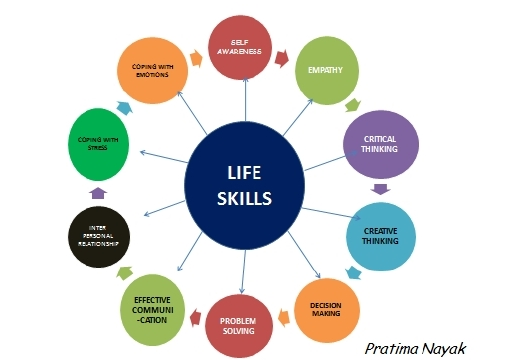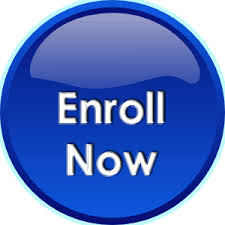Life skills are usually associated with managing and living a better quality of life. They help us to accomplish our ambitions and live to our full potential.
Essential Life Skills
There is no definitive list of life skills. Certain skills may be more or less relevant to you depending on your life circumstances, your culture, beliefs, age, geographic location, etc.
Different life skills will be more or less relevant at different times your life, for example:
- When at school or university, you'll need study skills
- When buying a house, negotiation skills may be needed
- You'll need to work on your employability skills to get a job
- When you have a job, leadership and presentation skills may be useful, along with a whole host of other skills.
- When you start a family, time management and organising skills are likely to become important.
There will be times throughout your life when you'll need conflict resolution, stress-management and problem solving skills too. Perhaps the most important life skill is the ability and willingness to learn. By learning new skills we increase our understanding of the world around us and equip ourselves with the tools we need to live a more productive and fulfilling life, finding ways to cope with the challenges that life, inevitably, throws at us. Life skills are not always taught directly but often learned indirectly through experience and practice.

Personal Skills
Personal Skills are the essential life skills we need to help maintain a healthy body and mind. How we recognise, manage and cope with emotions demonstrates how important it is for us to be aware of our and other people’s emotions. Anger and Stress can both be detrimental to our personal relationships and our health. Learning about anger and stress, recognising what may trigger them (in ourselves and others), what the symptoms are and how to control or manage such emotions can greatly enhance our the quality of our lives. Managing Stress is a key modern life skill.
Stress is your body's way of responding to any kind of demand. It can be caused by both good and bad experiences. When people feel stressed by something going on around them, their bodies react by releasing chemicals into the blood. These chemicals give people more energy and strength, which can be a good thing if their stress is caused by physical danger. But this can also be a bad thing, if their stress is in response to something emotional and there is no outlet for this extra energy and strength.
We offer a stress management where we discuss different causes of stress, how stress affects you, the difference between 'good' or 'positive' stress and 'bad' or 'negative' stress, and some common facts about how stress affects people today, and meditation as a stress management tool. Also, how to avoid stress in the workplace and tips for dealing with it.
Anger Management
Many people battle with low self-esteem and confidence which can cause stress and prevent them from reaching their full potential. Improving Self-Esteem and Building Confidence - this class provide practical ways to overcome these issues. Improved confidence and self-esteem are also linked with how we present ourselves to others.
Personal Presentation and Personal Appearance
Nutritional Guidance - taking care of our bodies since we are what we eat. We should all be aware of the benefits of a healthy diet and our class on nutrition can help you understand why our diet is so important. You will learn what is protein, what is fat, what are carbohydrates and learn about the basic food groups. Stress, Nutrition and Diet explains some of the ways that stress can be managed through what, and when, we eat. Alongside diet, exercise can play an important role in improving our sense of well-being and maintaining a healthy body and mind. As well as improving muscle strength, exercise can help you to maintain a healthy weight, increase your energy levels and improve your brain function.
Personal Development
However refined our personal skills, there is always room for improvement and self-development.
Most people associate learning with a formal education but learning can, and should, be a lifelong process that enhances our understanding of the world and improves the quality of our life. Lifelong Learning can aid your personal development. We can take a similar approach to learning how to build character and develop virtues such as Goodness, Compassion, Self-Control, and Friendliness as well as many more. We have a suggested reading list on books that can assist with this goal. Visit our online book library for titles on self help books.
Interpersonal Communication Skills
Communication is a complex subject but communication skills are important life skills. Interpersonal Skills are the skills we use when interacting directly with other people. For example, at a basic level, we use both verbal and non-verbal communication techniques when engaged in a face-to-face conversation. We also use listening skills. Well-developed listening skills are key to understanding and empathising with others. Do you listen effectively? Do you fully understand the messages being conveyed? Or are you more focussed on what you will say next?
There are potentially many barriers to effective communication in any communication situation. Unfortunately these barriers can hinder the communication process and lead to misunderstanding or even conflict. It is therefore essential for a strong communicator to be aware of such barriers and to find ways to communicate and work around them.
Effective listening skills, together with techniques such as clarification and reflection, can help prevent misunderstanding. Our Interpersonal Communication Skills class will help you develop:
- Listening Skills including Active Listening. Verbal Communication, Building Rapport and Effective Speaking.
- Non-verbal Communication and develop your skills in Clarification and Reflection.
- Barriers to Effective Communication and Communicating in Difficult Situations for more information.
- Negotiating - Learning how to effectively negotiate in a variety of situations has obvious advantages to your life. Negotiation is about being assertive, avoiding conflict or argument, and, where possible, working towards an outcome that suits all parties involved (a Win-Win situation). Much emphasis is given to problem-solving and decision-making in the modern workplace, and these skills are also very desirable and useful in our day-to-day lives. Learn some techniques to help you solve problems and make decisions.

